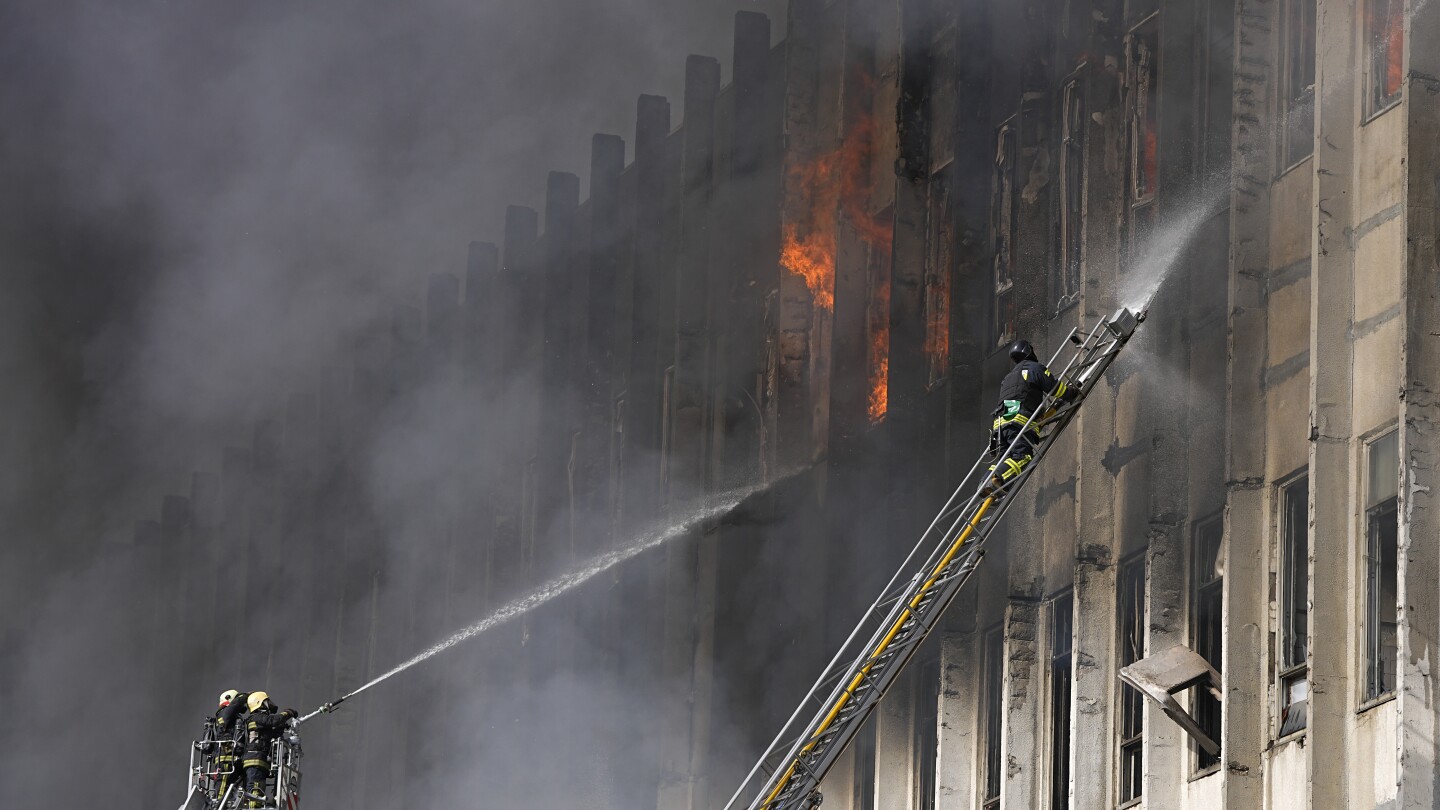BRUSSELS (AP) — There is a new sense of urgency in the European Union over the war in Ukraine.
As the 27-nation bloc’s leaders prepare to gather on Thursday, Ukraine’s munition stocks are desperately low. Russia has more troops. They are better provisioned and making slow, although costly, battlefield gains. Russian President Vladimir Putin appears ready to wait out the year to see whether U.S. elections return Donald Trump to the White House.
Even if President Joe Biden stays in office, EU leaders worry that the long, slow U.S. pivot to Asia – to focus on an ever-more assertive China – will pick up speed and increasingly leave Europe to take care of its own security. U.S. efforts to get new funds to arm Ukraine have stalled in Congress.
At the same time, the campaign is heating up for Europe-wide elections in June. The biggest political group in the European Parliament – the center-right European People’s Party – has made security a top issue. It’s getting harder to separate the campaign rhetoric from real concern about Ukraine.
“Into the third year of Russia’s war of aggression against Ukraine, we face a pivotal moment. Urgency, intensity and unwavering determination are imperative,” EU Council President Charles Michel wrote in a letter inviting presidents and prime ministers to the two-day summit in Brussels.
“The swift provision of military aid to Ukraine” is top priority, Michel wrote. The other, to shore up Europe’s defenses. “Now that we are facing the biggest security threat since the Second World War, it is high time we take radical and concrete steps to be defense-ready and put the EU’s economy on a ‘war footing’,” he said.
It’s unlikely that all 27 leaders would accept the shift to a war economy that might help produce the weapons and ammunition needed. Hungary for one, Russia’s closest ally inside the EU, is suing for peace and refuses to arm Ukraine.
Still, the realization that Russia under Putin would pose an existential threat should Ukraine fall has galvanized most of Europe.
“If the Russian president thinks he just has to sit out this war and we will weaken in our support, then he has miscalculated,” German Chancellor Olaf Scholz said Wednesday. “Russia is not strong, and it cannot speculate on us letting off in our support. We will continue it for as long as necessary.”
Support is growing among some leaders for defense bonds to finance military spending through common debt issuance; the same way the EU raised money for its pandemic recovery fund.
Other old red lines are being tested too. French President Emmanuel Macron has refused to rule out that Western troops might be sent to Ukraine, even though he concedes there is no consensus to do so now.
Macron’s stance has riled some allies, and been rejected, notably by Germany. Others welcomed the “strategic ambiguity” of his remarks — the importance of never announcing your intentions to an adversary.
Debate in Germany recently focused on whether to send Taurus long-range cruise missiles to Ukraine. Over the past two years, Scholz has at times drawn criticism for appearing to hesitate before finally agreeing to send new weapons systems, such as Leopard 2 battle tanks.
On Thursday, the leaders will weigh a new plan to use the interest earned on Russian assets frozen in Europe to help provide weapons, ammunition and defense industry support to Ukraine.
The 27-nation EU is holding around 210 billion euros ($228 billion) in Russian central bank assets, most of it frozen in Belgium, in retaliation for Moscow’s war against Ukraine. The bloc estimates that the money could generate profits of up to 3 billion euros ($3.3 billion) each year.
A small group of member countries, notably Hungary, refuse to supply weapons to Ukraine, so these windfall profits would be divided up. Around 90% of the money would be put into a special fund that many EU countries already use to get reimbursed for arms and ammunition they send.
The other 10% would be put into the EU budget to help bolster Ukraine’s defense industry. Countries that object to sending weapons could then claim that they are not arming the country.
Some countries are also signing up to a Czech plan to buy hundreds of thousands of artillery rounds from outside the EU. For security reasons, the government in Prague will not say who the supplier is.
While there seems to be no shortage of new ideas in support of Ukraine, divisions remain and they could be laid bare at the summit.
France, Germany, Poland and the Baltic states geographically closest to Russia – Estonia, Latvia and Lithuania – along with Denmark and Sweden still feel that they are providing the most help. They want Italy, Portugal and Spain to do more.
Whatever they do, it must be done quickly. The EU’s top diplomat says the coming months are pivotal.
“This summer will be critical,” EU foreign policy chief Josep Borrell told reporters on Tuesday. “Russia is hitting the positions of Ukraine every day in order to weaken them” before a wider offensive.
___
Geir Moulson in Berlin and Vanessa Gera in Warsaw contributed to this report.
___
Follow AP’s coverage of Russia’s war in Ukraine at https://apnews.com/hub/russia-ukraine

